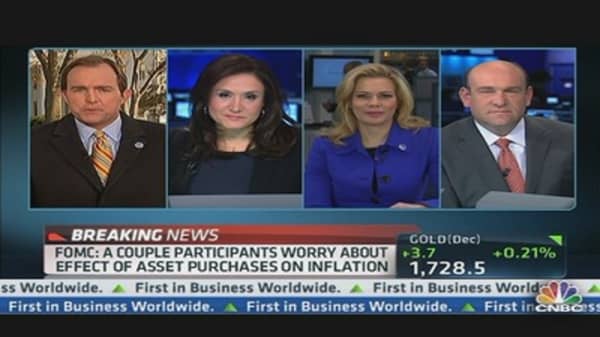The Dow Jones Industrial Average tumbled 185.23 points, or 1.45 percent, to end at 12,570.95, dragged by Bank of America ndHome Depot. Cisco was the only gainer on the blue-chip index. Dow was down more than 200 points in its session low.
The S&P 500 dropped 19.04 points, or 1.39 percent, to close at 1,355.49. The Nasdaq declined 37.08 points, or 1.29 percent, to finish at 2,846.81, breaking into correction territory.
The CBOE Volatility Index, widely considered the best gauge of fear in the market, jumped above 17.
All key S&P sectors closed in negative territory, led by industrials nd banks.
The Federal Reserve signaled that it will likely launch a new bond buying program next year when the Operation Twist program expires, according to minutes from the central bank's Oct. 23-24 policy meeting. In addition, the minutes also revealed that officials felt their decision to launch a third round of quantitative easing has improved financial conditions and helped support the housing recovery.
President Barack Obama held his first news conference since his re-election, saying that he is confident that Republicans can join Democrats in avoiding the fiscal cliff. While Obama said he was "open to new ideas" on tax rates, he also insisted a modest increase in taxes on the wealthy "will not break their backs" and will not impinge on business investment.
Major averages have declined since last week as investors remain cautious with renewed worries over Europe's debt crisis and the U.S. fiscal cliff—large, mandated tax hikes and spending cuts that start to take effect next year. Analysts say that the failure to reach a deal in Congress could tip the U.S. economy into recession. (Read More: How 'Fiscal Cliff' Could Hurt You)




